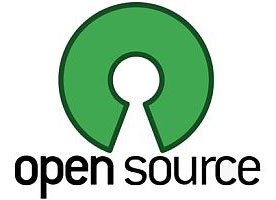 • Why should I go with Free and Open Source Software (FOSS) instead of commercial software?
• Why should I go with Free and Open Source Software (FOSS) instead of commercial software?
• Isn’t commercial software better because it comes from a known-name company?
• The best things in life are free, such as the software that holds most of the Internet together.
There are a number of advantages to Open Source software, and we think you’ll find that Open Source solutions often compare favorably against commercial alternatives.
First off, let’s talk price.
Many commercial web solutions run several thousand dollars for initial purchase, plus several thousand dollars per year for ongoing licensing. On a recent project for which we recently contracted, the commercial competition’s price tag was US$100,000 over a five-year period. That estimate did not include continuing maintenance after the first five years; the licensing fees were to continue.
Vendor lock
Most commercial software uses proprietary storage formats. This means that your data, once entered into their system, stays in their system. If you’re unsatisfied with their software for some other reason, you’re stuck with it because you have no way to get your data out and migrate it to something else. Sure, they may be gracious enough to write an export utility so you can extract your data – or they may not.
Copia Group / HostGIS is commited to open industry standards. This means that if you decide to migrate to a different solution, your data is available in industry-standard formats that are well-known to any developer and are compatible with virtually all solutions.
What about upgrades and bugfixes?
All software has bugs, even the big-name commercial stuff. It’s a fact of life. And here in the Open Source world, if there aren’t any bugs to fix, we go looking for them. We are constantly working to develop our systems for new features and increased stability, flexibility, and cross-browser compatibility. New features and capabilities are incorporated into the systems almost every week.
Also notable is the transparency of the bug-reporting and fixing process. The bugtrackers for any significant FOSS project are publicly accessible on the Internet, along with developer notes, workarounds, and the bug’s status. When someone says “yeah, it’ll be fixed in the next version” just ask for the bug number and you can look it up yourself and make sure.
It’s not a service pack that comes out twice a year. It’s not another optional upgrade you have to pay for. You’re always getting the best. We notice bugs and we fix them. We wish the application could do something, and we do it. Open Source is like that. It’s what we do.
What about customization? What about technical support?
Open Source is also about a community. From a business perspective, this means three things.
First: The technical support base for Open Source software is vast. There isn’t an 800 number that will charge you by the minute, there’s a mailing list of a few thousand people who know their stuff. There’s our staff of programmers who know their stuff. And yes, if you’re really stuck on having an 800 number that guarantees results, there are companies that provide commercial telephone tech support for most Open Source software, including the software we use to host your sites and applications.
Addendum to First: If you’ve ever actually used the tech support at a large company, you know that it’s usually awful and that you’ll resort to the public forums anyway. Don’t you wonder why you spent the money when the good support is from the community anyway?
Second: We are proud of our software. When our customers ask for a change or a new feature, we jump on it. And usually we accomplish it within a few days. No “boxed software” solution offers custom development and modification with such a quick turnaround.
Third: Our customers usually become partners. Our customers are knowledgeable people, and every customer we have is another contact that helps build our base of capabilities, by providing a service or a product or expertise. We know our customers, we learn from our customers, we refer people to our customers. It’s not about being a “HostGIS certified provider” or getting a referral fee. We know people who know people, and if there’s something we can’t provide we may know someone who can.
Welcome to the Open Source community.
